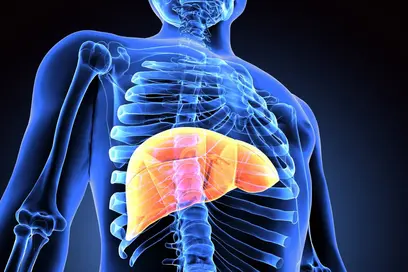Microscopically small, newly formed tumors may rest in dormant state for months or even years without forming their own blood vessels. It takes a kind of cellular switch to activate genes that are required for the sprouting of new bood vessels. New vessel formation is often accompanied by rapid, invasive tumor growth and metastasis. Drugs directed against key molecules of angiogenesis are already successfully used today to prolong survival of many cancer patients.
Dr. Dr. Amir Abdollahi and Professor Dr. Dr. Peter Huber at the German Cancer Research Center (Deutsches Krebsforschungszentrum, DKFZ), collaborating with Heidelberg University and US researchers, have investigated what happens at the molecular level when the angiogenetic switch is operated. The investigators studied the genetic reponse of blood vessel cells (endothelial cells) to known angiogenesis-promoting factors as well as angiogenesis inhibitors. In the “proangiogenetic“ state, angiogenesis-promoting genes are switched on, while antiangiogenetic genes are switched off. The organism responds by sprouting new blood vessels. When the gene network is in “antiangiogenetic“ state, the reverse is the case, i.e. the formation of blood vessels is prevented.
Measurements of gene activity in tissues samples of patients with diseases of the pancreas have shown the clinical relevance of these findings. From normal pancreatic tissue via chronic pancreatitis through to pancreatic cancer the researchers found a steady increase in the activity of those genes that had been identified in the cell experiment as angiogenesis-promoting. This trend was studied in more detail on a gene called PPARδ, whose role in tumor development and angiogenesis had not been known before. The scientists were able to show that the level of PPARδ protein steadily increases from normal tissue via pancreatitis tissue through to metastasizing pancreatic cancer. Other tumors, such as breast cancer and prostate cancer, were also found to produce increased levels of the angiogenesis-promoting protein.
In order to study the protein’s actual role in tumor vessel formation, the investigators transplanted skin and lung cancer cells into genetically engineered mice that do not produce their own PPARδ. Compared to normal animals, tumor growth in the genetically engineered mice was signifantly slower with poorer supply of vessels.
However, PPARδ is only one of many key switches within the angiogenetic network. “Regulation of angiogenesis seems to be more complex than previously assumed,“ says project leader Peter Huber. “Therefore we think that in cancer treatment it is not sufficient to inhibit only one of the participants. Antiangiogenetic therapy might be improved by targeting several of the network’s key switches. One of these could be PPARδ.“
Amir Abdollahi, Christian Schwager, Jörg Kleef, Irene Esposito, Sophie Domhan, Peter Peschke, Kai Hauser, Philip Hahnfeldt, Lynn Hlatky, Jürgen Debus, Jeffrey M. Peters, Helmut Friess, Judah M. Folkmann and Peter E. Huber: Transcriptional network governing the angiogenetic switch in human pancreatic cancer. Proceedings of the National Academy of Science 2007, DOI: 10.1073/pnas.0705505104
About DKFZ
With more than 3,000 employees, the German Cancer Research Center (Deutsches Krebsforschungszentrum, DKFZ) is Germany’s largest biomedical research institute. DKFZ scientists identify cancer risk factors, investigate how cancer progresses and develop new cancer prevention strategies. They are also developing new methods to diagnose tumors more precisely and treat cancer patients more successfully. The DKFZ's Cancer Information Service (KID) provides patients, interested citizens and experts with individual answers to questions relating to cancer.
To transfer promising approaches from cancer research to the clinic and thus improve the prognosis of cancer patients, the DKFZ cooperates with excellent research institutions and university hospitals throughout Germany:
- National Center for Tumor Diseases (NCT, 6 sites)
- German Cancer Consortium (DKTK, 8 sites)
- Hopp Children's Cancer Center (KiTZ) Heidelberg
- Helmholtz Institute for Translational Oncology (HI-TRON Mainz) - A Helmholtz Institute of the DKFZ
- DKFZ-Hector Cancer Institute at the University Medical Center Mannheim
- National Cancer Prevention Center (jointly with German Cancer Aid)
The DKFZ is 90 percent financed by the Federal Ministry of Research, Technology and Space and 10 percent by the state of Baden-Württemberg. The DKFZ is a member of the Helmholtz Association of German Research Centers.


